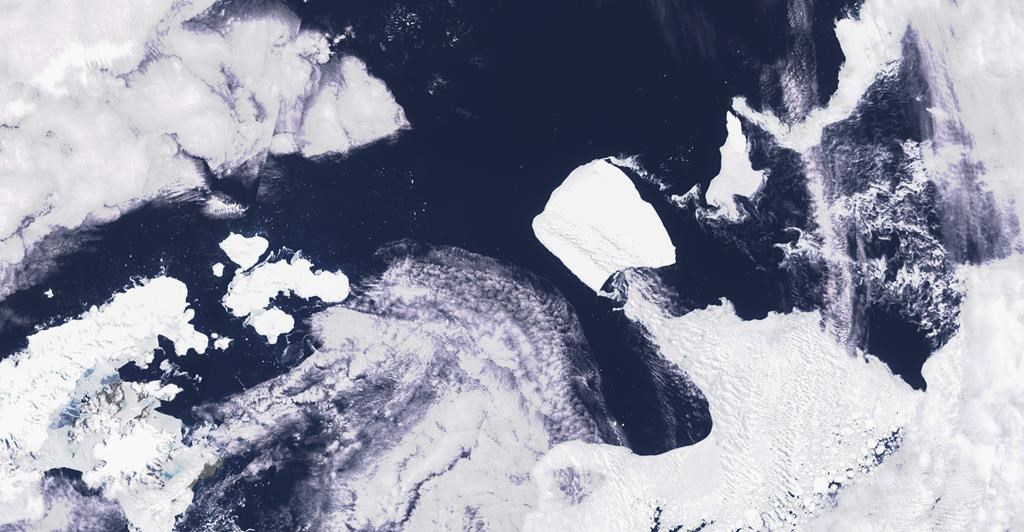Support strong Canadian climate journalism for 2025
One of the world’s largest icebergs is drifting beyond Antarctic waters, after being grounded for more than three decades, according to the British Antarctic Survey.
The iceberg, known as A23a, split from the Antarctic's Filchner Ice Shelf in 1986. But it became stuck to the ocean floor and had remained for many years in the Weddell Sea.
The iceberg is about three times the size of New York City and more than twice the size of Greater London, measuring around 4,000 square kilometers (1,500 square miles).
Andrew Fleming, a remote sensing expert from the British Antarctic Survey, told the BBC on Friday that the iceberg has been drifting for the past year and now appears to be picking up speed and moving past the northern tip of the Antarctic Peninsula, helped by wind and ocean currents.
“I asked a couple of colleagues about this, wondering if there was any possible change in shelf water temperatures that might have provoked it, but the consensus is the time had just come,” Fleming told the BBC.
“It was grounded since 1986, but eventually it was going to decrease (in size) sufficiently was to lose grip and start moving," he added.
Fleming said he first spotted movement from the iceberg in 2020. The British Antarctic Survey said it has now ungrounded and is moving along ocean currents to sub-Antarctic South Georgia.




Comments
Next up, Thwaites.